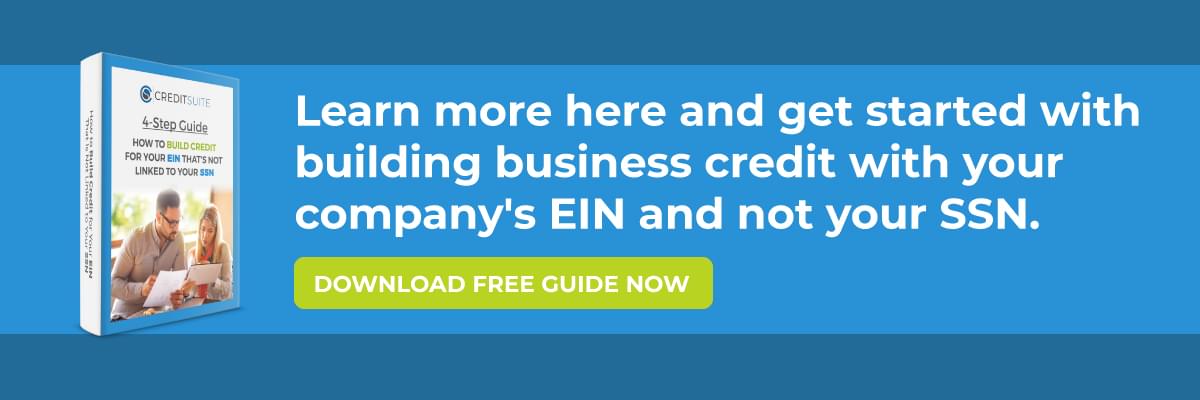
Get to Know the Main Business Credit Scores from Equifax Loans
Are you looking for Equifax loans? Equifax is not an actual lender. But what they score will be one of the reasons whether your business can borrow money at all. So consider Equifax loans and scores. Because they are vital parts of the decision making process when it comes to borrowing money or getting credit for your business.
But first, it helps to consider what business credit actually is.
What is Business Credit? How Does it Relate to Equifax Loans?
Business credit is credit which is in the name of a business. It is not tied to the owner’s creditworthiness or Social Security Number. Instead, business credit scores depend on how well a company can pay its bills. Consumer and business credit scores can vary dramatically.
What are the Biggest Business Credit Reporting Agencies?
When you are looking at Equifax loans, then you should be looking at business credit reporting agencies. There are three large business CRAs: Dun & Bradstreet, Experian, and Equifax. There is also the FICO SBSS business score.
Equifax Funding Data
The company gets its data from a data sharing agreement with the Small Business Exchange, and Net 30 type industry trade credit information from a wide variety of suppliers. These suppliers provide products and services to businesses on an invoice basis.
Equifax Financial Report Details and Scores
Equifax has a few main scores:
- The Small Business Credit Risk Score for Financial Services; plus the Small Business Credit Risk Score for Suppliers
- The Small Business Failure Risk Score
- The Payment Trend, and the Payment Index
Check out a sample Equifax business credit report at assets.equifax.com/assets/usis/small_business_sample_credit_report.pdf.
What is the Purpose of Equifax Loans Scores?
It is a good idea to explore the purpose of scores. Scores answer one basic question: How likely is a business to go severely delinquent in its payments? The score is an indication of whether a company is likely to make late payments.
Equifax’s Credit Risk Scores for Equifax Loans
It is time to consider Equifax Credit Risk scores.
The key factors are:
- Evidence of Non-Financial Trades Ever Cycle 2+ Delinquent or Charge-Off
- Length of Time Since Oldest Financial Account Opened Suggests Lower Risk
- Available Credit Limit on Revolving Trades Suggests Lower Risk, and
- Company Size (Number of Employees)
Any of these can suggest lower risk.
Learn more here and start building business credit with your company’s EIN, not your SSN.
The Small Business Credit Risk Score for Financial Services
Check out the Small Business Credit Risk Score for Financial Services. The Business Credit Risk Score predicts the likelihood of a business incurring a 90 days severe delinquency, or charge-off over the next 12 months. So the score ranges from 101 to 992. A lower score indicates higher risk.
The Small Business Credit Risk Score for Suppliers
Compare with the Small Business Credit Risk Score for Suppliers. This score predicts severe delinquency or change-offs, on supplier accounts, or bankruptcy within 12 months. So its scores range from 101 to 816.
The Small Business Failure Score
Check out the Small Business Failure Risk Score. So this score runs from 1000 to 1880. Higher scores mean a business is less likely to fail.
Key Factors
The key factors for the Small Business Failure Score are:
- Length of Time Since Oldest Financial Account Opened Suggests Lower Risk
- Total Balance to Total Current Credit Limit Average Utilization in Prior 3 Months Suggests Higher Risk
- Worst Payment Status on All Trades in the Prior 24 Months Suggests Higher Risk, and
- Evidence of Non-Financial Trades for two or more Cycles Historically
Any of these can help to determine Equifax loans decisions.
Details on the Small Business Failure Score
Let’s look at the Small Business Failure Score. The Business Failure Score predicts the likelihood of a business failing through either formal or informal bankruptcy over the next 12 months. So the score ranges from 1000 to 1610. A lower score indicates higher risk.
Payment Trend
So check out the Payment Trend. The Payment Trend shows a twelve month payment trend. This is in comparison to the industry norm. It measures the average days beyond terms by date reported. So this is for non-financial accounts only.
Trended Data
Equifax is using trended data to help its customers make lending and credit decisions. Because trended data helps businesses to identify those more likely to default or declare bankruptcy. And it helps them to monitor on-going account activities. So it also helps them to refine and monitor underwriting and modeling strategies. And it helps to predict propensity to pay. And it helps identify abnormal spending patterns to mitigate fraud and reduce delinquency.
Learn more here and start building business credit with your company’s EIN, not your SSN.
What is the Equifax Loans Payment Index?
Let’s look at the Payment Index. The Payment Index compares payments to the industry norm.
90 or better means Paid as Agreed. So 80 to 89 means one to 30 days overdue. 60 to 79 means 31 to 60 days overdue.
40 to 59 means 61 to 90 days overdue. So 20 to 39 means 91 to 120 days overdue. And one to 19 means 120 or more days overdue.
Equifax Loans Business Credit Scores are Combined with Consumer Scores
Equifax is blending scores with consumer scores. And Equifax offers a blended option. It is for the Small Business Credit Risk Score for Financial Services and the Small Business Credit Risk Score for Suppliers. Both of these scores can be used with commercial-only data or commercial and consumer credit data.
A For-Instance
For example, the blended option for the Small Business Credit Risk Score for Financial Services uses consumer credit information on the business owner, principal, or guarantor. It adds this information to public records, firmographics, and supplier credit history data. It also combined with lease payment and banking information.
Equifax Loans Business Credit Reports
Consider Equifax business credit reports. An Equifax business credit report also includes information on the percent of utilization. But this is for financial accounts only. So this is the amount of credit in use. And then that figure is divided by the total amount of available credit.
An Equifax business credit report also includes information from public records. This includes bankruptcies, judgments, and liens.
An Equifax business credit report also includes information on any recent inquiries. It also shows whether the company has any alternate names, and if there is a DBA.
Learn more here and start building business credit with your company’s EIN, not your SSN.
How You Can Navigate and Improve your Equifax Business Credit Report
Let’s look at your actual Equifax business credit report. It divides into sections. Here’s a sample Business Credit Advantage report: https://sbcr.experian.com/pdp.aspx?pg=Sample-BcaP&ftr=nolinksCloseButton&hdr=reportPopup&link=5558
Company Identifying Information
The first part is devoted to identifying information about your company, e. g. the business name, and its address and telephone number, but also details such as whether or not your small business is incorporated, and the date you first went into business. This area will also consist of the number of employees and your company’s annual sales. This sector will additionally display if there are any alerts. So it is at the top.
Scores
The following portion consists of two scores:
- Your business credit score and
- Your financial stability risk rating
Credit Summary
In the summary component, the report shows the number of your business’s tradeline accounts, and the number of business inquiries. It also has your total outstanding balance, and any derogatory information such as liens, judgments, and bankruptcies. If there are any specific tax liens or the like, those are specified further down in the report. And it has the single greatest amount of credit extended, the median amount of credit extended, and the highest and lowest open 6 month balances.
Payment Trend Summary
So this next piece is a number of graphs regarding your payment trends over time.
Trade Payment Information, Inquiries, Collection Filings and Summary
These sections offer more information about the above sections. Also, they contain dates and balances. The Trade Payment Information portion also contains the terms you are paying to various supplier categories.
Commercial Banking, Insurance, Leasing
Next are the specifics on your bank accounts, insurance accounts, and any leases your business is obligated to pay back.
Judgment Filings and Tax Filings
So these two portions show the specifics about any tax liens and judgements against your business.
Hence the details include date, jurisdiction or location, and liability amounts.
UCC Filings and UCC Filings Summary
A Uniform Commercial Code filing is often a part of getting a loan or having credit extended to a business.
These sections have all the details on any UCC filings as against your business. These details include the date, the filing jurisdiction, and the name of the party holding the lien.
Score Improvement Tips
So Equifax offers tips to improve your score. These include urging businesses to negotiate net 30 terms and pay their debts on time. Tips also include keeping your credit utilization within reason and length of credit history.
Furthermore, the end of a typical report gives information on how to dispute any errors.
Equifax Loans: Takeaways
Equifax has five main business credit scores. These are:
- The Small Business Credit Risk Score for Financial Services
- Small Business Credit Risk Score for Suppliers
- Also, the Small Business Failure Risk Score; Payment Trend, and
- the Payment Index
An Equifax financial report will also contain information on public records and more.
While there is technically nothing known as Equifax loans, all of the Equifax funding information you could ever want is in their reports.
The post Get to Know the Main Business Credit Scores from Equifax Loans appeared first on Credit Suite.



